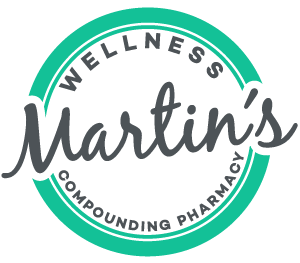Winter Prep: Vitamins, Supplements & Pharmacist Advice

Winter is here, ya’ll! Tis the season for holiday happenings, cooler temps, and shorter days. It’s also prime time for cold and flu bugs to spike and spread. Regardless of your overall health, you may be more vulnerable to infection, especially respiratory-related illness, during the colder months thanks to winter-weakened immune systems1 and more time spent indoors with other people where viruses and microbes can easily spread.
Fortunately, there are some essential vitamins you can take in the winter to boost your immunity and help your body thrive through the season. In today’s post, we’re sharing these vital winter vitamins, as well as the best supplements for winter that can help keep you healthy.
Best Vitamins to Take During Winter
We know that eating a healthy diet that’s rich in whole foods is the best way to get our daily dose of recommended vitamins and minerals. However, sticking to routine during winter, a.k.a., holiday season isn’t always easy. We understand, which is why we’re sharing this list of immune-boosting vitamins to take in winter to keep germs at bay.
Vitamin C
Among the best vitamins for winter, Vitamin C certainly tops the list for its ability to strengthen the immune system. Although an extra boost of vitamin C may not stave off colds completely, it can help reduce the severity of your symptoms. In fact, according to the U.S. National Institutes of Health, people who regularly take a vitamin C supplement may experience a shorter cold or milder symptoms.
This powerful antioxidant can also help save winter skin, which tends to dry out during colder months. So, reaching for vitamin-C-infused body products can help give skin the extra support it needs to survive winter temps.
Vitamin B
When customers ask what is a good vitamin for energy, we turn to the B family. This family of vitamins includes several closely related water-soluble vitamins that are responsible for numerous vital metabolic functions. For example, they are indispensable for energy production, normal functioning of the nervous system, and regeneration of muscles and skin.
Not sure which B vitamins to take during winter? Let’s examine the benefits of each, beginning with B-12 which helps regulate your nervous system, improve mood, and boost energy. Next up is B-6, which helps your body turn food into energy. Vitamins B-1 and B-2 also convert what you eat into energy while also supporting eyesight and providing neurological benefits. Vitamin B supplements are available in single B vitamin or B complex concentrations.
Vitamin E
Curious about which vitamin is good for winter skin? Your dry, flaky, or itchy winter skin will love lotions rich in vitamin E for their ability to help the epidermis hold water, keeping it soft and resilient. Vitamin E is also well known for its antioxidant effects, protecting your cells from oxidative damage by neutralizing harmful molecules called free radicals. It’s also necessary for proper immune function and cellular signaling.2
Vitamin D
When asked about the best supplements for winter depression, we often turn to vitamin D. Our bodies produce vitamin D when the skin is exposed to sunlight, which is tough during winter when the days are shorter, and it’s too cold to spend a lot of time outdoors. Taking Vitamin D during the winter replenishes what the sun cannot do while also boosting your immunity and fortifying your bones.
Other Important Winter Supplements


Now that we’ve covered the best vitamins for cold season, let’s look at a few other beneficial supplements to consider during the winter season.
Iron
Iron is the mineral that produces hemoglobin, the protein responsible for carrying oxygen to your tissues. It can also help regulate body temperature, making iron one of the most effective supplements to stay warm during the winter months. So, if you’re feeling fatigued, experiencing cold hands and feet, or have brittle nails this winter, ask your doctor about supplementing your diet with iron to help.
Omega 3 Fish Oil
Omega-3 fish oil contains fatty acids that reduce inflammation and lower the risk of diseases. They are also important for brain memory, performance, healthy skin, and behavioral functions. Deficiencies in these essential fatty acids can cause a number of problems, including fatigue, poor memory, dry skin, mood swings, depression, and poor circulation - symptoms that tend to worsen during the cold winter months.
Zinc
Among the best supplements to take in winter, especially for shortening the length of cold symptoms, Zinc may be the most well-known. Zinc is an essential mineral involved in many important bodily processes we need during the winter months (especially), like supporting immune function, normal macronutrient metabolism, and the maintenance of normal hair, nails, and skin.
Zinc is considered an essential nutrient, meaning that your body can’t produce or store it. For this reason, you must get a constant supply through your diet or supplementation. Athletes and other people who sweat more than usual are at greater risk of zinc insufficiency; however, too much zinc can pose risks, so check with your pharmacist or doctor before beginning supplementation.
Magnesium
Magnesium is found throughout the body in your cells, muscles, bones, tissues, and more. It is necessary for bodily function and supports hundreds of chemical reactions in your body. Magnesium has been linked to many health benefits, including improved exercise performance, lower blood sugar, improved heart health, and more.
Although there are many magnesium-rich foods available, like pumpkin seeds, cooked black beans, peanut butter, or boiled spinach, many adults do not get enough in their diet, so supplementation is always an option.
Recommended Vitamins and Supplements to Help with Cold and Flu


The cold and flu season is hitting Central Texas particularly hard this year, and many are already asking what is the best supplement to take to keep the immune system healthy and ready to fight harmful germs. Among the many cold and flu vitamins to consider, the following three have shown to have the greatest benefit: vitamin C, zinc, and vitamin D.
Vitamin C certainly tops the list of vital vitamins for cold season, as it helps immune cells form and function while supporting the physical barriers that protect you from pathogens. Several studies 3,4 have shown that Vitamin C can reduce the duration of colds, but only if you’ve been supplementing regularly.
Next up is zinc, which has been commercially marketed as defense against the common cold for years. Most colds are caused by a type of virus called rhinovirus, which thrives and multiplies in the upper respiratory system, i.e., nasal passages and throat. Zinc can help by preventing the rhinovirus from multiplying, and it may also stop the rhinovirus from lodging in the mucous membranes of the throat and nose.
Zinc for colds is often recommended in lozenge or syrup form, which allows the substance to stay in the throat and come in contact with the rhinovirus.
Finally, we have vitamin D, the “sunshine vitamin.” Epidemiological studies have shown an association between low vitamin D levels and a higher risk of viral infections of the upper respiratory tract (URT). Furthermore, according to a 2017 systematic review from randomized controlled trials, taking vitamin D could help prevent asthma symptoms and upper respiratory tract infections.
Basically, Vitamin D is essential to many critical functions in the body, and a deficiency may impair immunity - making vitamin D one of the essential vitamins to take in the winter.
As cold and flu season ramps up, it’s time to take stock of your overall diet and lifestyle. Are you eating foods rich in zinc, vitamins C, D, and other essential vitamins and supplements for winter?
Your best defense against cold season is a good offense, so be sure to eat right, exercise, get plenty of sleep, and consult a Martin’s Wellness pharmacist for advice on which immunity-boosting vitamins and supplements to stock up on as the temperature drops - or shop anytime from our online store. Our wellness practitioners are available to answer all of your supplement questions, including the best time to take vitamin supplements. Contact us today!
